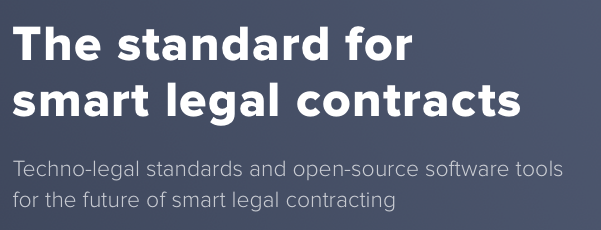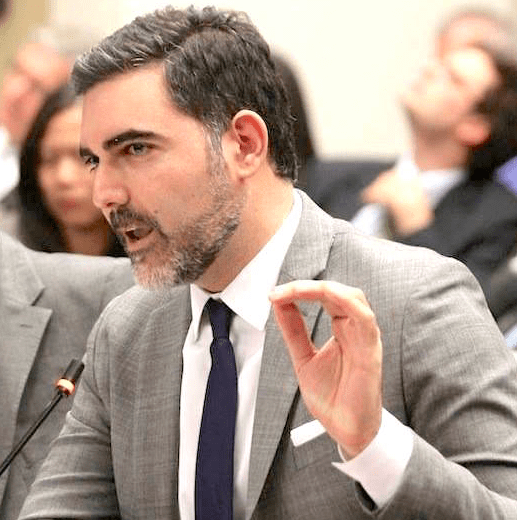
The IEEE, the world’s largest technical professional organisation, and smart contract and blockchain consortium the Accord Project, today announced an agreement to develop ‘techno-legal standards’ that will focus on smart contract applications in a wide variety of areas, starting with supply chain operations.
The partnership, which involves the standards sub-group the IEEE Standards Association (IEEE-SA), is both significant and a major step forward. As readers of Artificial Lawyer will know, Accord and its members, especially smart contract pioneers, Clause, have been working hard on a global basis to create rules and standards for the use of smart contracts.

What any system that will be used as part of the global trading infrastructure and our economic fabric will need is a set of standards, rules and protocols that key players buy into and trust.
To do this you need the world’s leading standards organisations onboard and engaged. This is precisely what Clause and the broader Accord Project are seeking to do.
Moreover, this is especially needed now given that what passes for ‘smart contracts’ today, to quote an often used line ‘are neither that smart, nor contracts’. I.e. much of what one sees labelled as smart contracts on blockchain platforms such as Ethereum are very basic automated payment agreements, which although self-executing, and on one level are ‘contracts‘ as two parties have agreed to them, are in reality very far from the complex legal agreements that lawyers and corporates use, and upon which most business depends upon.

Initially, the collaboration will involve creating a 12-member working team of critical stakeholders that includes supply chain operational executives, blockchain architecture technologists, smart contract developers, legal experts, and industry advocacy groups, in the hopes of ‘ensuring a balanced consensus throughout the standards development process’.
Houman Shadab, Co-Director of the Accord Project, said: ‘Business is becoming increasingly dependent on data and automation which makes enterprise-focused smart legal contracts an important tool to optimize process, lower costs, and deliver more value while operating on and off distributed ledgers.’

‘Teaming up with the IEEE Standards Association will create the path for broad-based industry acceptance of the technology, making smart legal contracts a critical component of the digital ecosystem. This collaboration brings together two protocols in a manner that greatly benefits commercial relationships, supply chains, and the advancement of blockchain,’ he concluded.
The Accord Project team added that: ‘The worlds of business and technology are complex, fast moving, and present many opportunities for improvement using smart legal contracts. Global supply chain systems in particular are complex, requiring transparency, traceability and auditability.
Despite the “digital wave,” hybrid paper and electronic documentation methods are still largely in play for the audit and management of supply chains. As a result of this a gap exists for loss that can also hinder efforts to accurately measure success, track inventory, and more.’
Once formed, the working team will first explore the uses and related barriers to application within the supply chain field. Use cases will examine tracking products, payments, and vendor agreements.
Alpesh Shah, senior director of Global Business Strategy & Intelligence at the IEEE Standards Association, concluded: ‘Defining the viability of smart contract applications utilizing a techno-legal standard is essential to drive industry-wide acceptance.’
Readers are encouraged to check out the Accord Project site, and if they would like to they can use and/or contribute to its open source code, which can be found on Github.
2 Trackbacks / Pingbacks
Comments are closed.